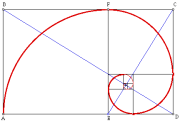When was the last time you “defragged”?
I am continuously surprised at how many PC users have let a year or more pass since their last defrag, or never have defragged at all. “Why is my machine slower than it used to be?” That is a very common question. It is a question with no single, or simple answer. Yet there is a single, and simple, step you can take which will improve the speed at which your machine reads and writes data, and which, if done regularly, will keep it at near the speed it had when it was new–it’s called “defragging” (short for defragmentation). Defragmentation remedies file fragmentation, which occurs, invisibly to you, over the course of time.
Tip of the day: It is commonly suggested that you run a defrag at least once a month. I recommend that you schedule your defrags to run automatically using Windows Scheduled Tasks tool. Set it and forget it, as the old saying goes. Here are the steps to do it:
1) Start>Control Panel, click Performance and Maintenance and then click Scheduled Tasks.
2) Double-click Add Scheduled Task to open the Scheduled Task Wizard, and then click Next.
3) Follow the wizard to set a schedule for when to run the defragmentation program (I recommend running it late at night, as it can take a while to complete), and be sure to supply a password for the account on which you want the task to run, and mark the checkbox “wake the computer to perform this task.”
4) Check the box for Open advanced properties for this task when I click Finish. On the Run line, add the drive letter for the drive to be defragged. For example, %SystemRoot%\System32\Defrag.exe c:
(This example is for XP, but you can do it in earlier–all the way back to Win 95–versions as well)
Another thing you can do is get rid of the files on your hard drive that you no longer need: such as emptying your Recycle bin and deleting your temp files (a quick, safe, and simple way is Windows Disk Clean Up tool) and there are some nice applications to automate and/or simplify this for you, such as today’s free link. Also, use Add/Remove Programs to remove applications you no longer use. Go to Start>Settings>Control Panel>Add/Remove Programs and wait for the list to “populate”. Click on those programs you are certain you have no more use for and click on the Remove button.
Today’s free link: CCleaner CCleaner is a freeware system optimization and privacy tool. It removes unused and temporary files from your system – allowing Windows to run faster, more efficiently and giving you more hard disk space.
Copyright © 2007 Tech Paul. All rights reserved.
| Share this post : |

 Subscribe to Tech--for Everyone by Email
Subscribe to Tech--for Everyone by Email












This is good information, and useful to almost every computer user. It is interesting to watch the display on some defragging programs. It seems like near magic, as the various segments are rapidly shuffled here and there, to eventually end up in their more orderly arrangement. And the increase in operating speed is often quite noticeable.
LikeLike
Actually NTFS which everyone should be using or they need a new computer at this point. Also, while NTFS dose fragment your hard drive the performance is not effect as much as the FAT file system was by fragmentation. So in 95 defragging your hard drive was essential, but today you will see little benefit. However, the point about deleateing file to free up space can help if your hard drive is full because performance really goes down when more then approximately 80% of the hard drive is used. In fact windows may not be able to defrag your hard drive effectively if it is that full.
However for most people the reason their computer is slow is they have malware on it, either viruses, spyware, or simply poorly made software that hogs system resources. This of course ties up memory cpu cycles and bandwith all of which can make your computer slow.
So I recommend running anti virus/malware tools if you want to speed up your computer. Or get a Mac or switch to Ubuntu both of which don’t get viruses or malware and their harddisks don’t need to be defraged at all.
LikeLike
You are absolutely right about fragmentation being neglected by users. Most users believe that it hardly impacts performance, not knowing that their computer seems to take ages to do any task for no apparent reason. Its most frustrating for power users and hard core gamers for whom lags and hangs can spoil the entire computing experience. Its as simple as this, if you dont take good care of your bones, have enough calcium, they are going to get weak and you will walk slower. Same way if the HDD gets fragmented, its going to work slower and finally give up.
LikeLike
How to check last time defragment
LikeLike
John Krestner,
In Windows 7 and Vista, the “details” section will tell you. Frankly, it has been so long since I have used XP, I cannot recall a quick-and-easy defrag report, or if there was one (or if you had to check Event Viewer)…
But I do remember that you can click on “Analyze” and the defrag tool will tell you if a defragmentation is needed. I would go by that result … instead of deciding by age.
Typically, the defrag should be run once a month or so.
LikeLike